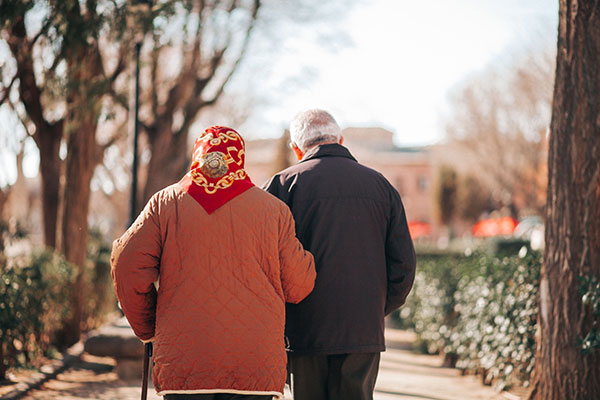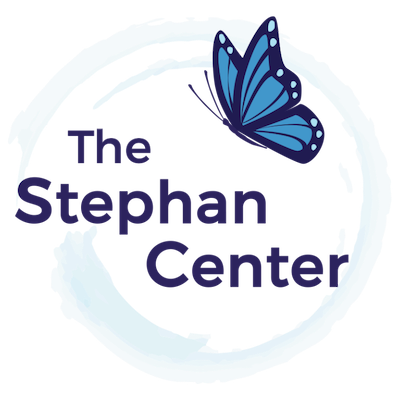
One of the interesting complexities of human beings is our struggle with our age.
When we are young we are always trying to be “Older” yet when we are considered “Older”we work very hard trying to be or stay “Young”. “Aging” seems to have become a “bad word” even though we begin aging at birth. Everyone does it!
So how do we accomplish aging with dignity, humility, wisdom, grace—and HUMOR?
How do we learn to accept the natural changes of our bodies and minds without losing our sense of our inner being- that part of us that makes us unique and special?
We offer the following ideas:
- Attitude: If we see aging as a “bad” thing, a loss of what we had rather than a culmination of
experiences and wisdom, then every aspect of aging will be viewed in a negative light and we will fight it. Accepting the changes that occur and adjusting our lifestyle to highlight the enjoyable aspects of each stage of our lives provides us with a positive focus and brings joy to each activity and relationship. - Good Health: While we may not be able to control all aspects of age related health issues we can be pro-active in how we manage them. Following nutritious eating, regular exercise, adequate sleep patterns and prescribed treatments, including medication and check- ups, allow us to be in control of the situation and maximize our ability to stay active and engaged.
- Staying engaged: As our bodies slow down it is often easier not to do something then it is to do it. However staying connected to those we love is vital to our mental well-being. With the new technology and the “tried and true” methods we can stay in communication with others.BUT we need to make the effort and not expect others to always come to us. Notes, phone calls, skyping, emails, facebook are all ways to stay involved with the people who are important to us.
- Social Activities: We don’t need to have a “full dance card” to have a fulfilling social life. But we do need to have several activities each month that we enjoy and that brings us in direct contact with others. This might include regular dinners with friends, membership in clubs, attending concerts, plays or movies, card playing or trips. We need to have both activities we enjoy and plans we can look forward to enjoying.
- Intergenerational relationships: Part of the responsibility of acquiring experience and wisdom is sharing it with other, especially those who have not had the time to experience the same life stages. Thus it is important to interact with people of all ages in both social and teaching situations. This includes not only our immediate family members but friends, neighbors, Church members and residents in our communities. These interactions support both opportunities to teach and to learn.
- Being of Service: Providing service to others benefits everyone. It helps those we serve and helps us, also. Service can be occasional or ongoing. It can be from your home or out in the community. The most important aspect is to be open to the opportunities to help someone else rather than just waiting for others to help you.
- Spiritual Connections: Whether through a formal religious affiliation or your own spiritual exploration, as human beings, we are drawn to a spiritual connection. Seek out and nurture your spiritual needs through worship, spiritually based readings, interaction with nature and other methods which touch and feed your soul.
- Finding Purpose: As human beings we are happiest when we have purpose in our lives; a focus that provides meaning in our lives. As youngsters, school and learning gives us purpose, later work/careers and our family gives us purpose. Once we retire we need to re-define the purpose in our lives. Without a purpose we become a rudderless boat drifting aimlessly. This aimlessness can lead to hopelessness, isolation and depression.
- Maintaining Humor: Humor is recognizing the absurd in the ordinary and pointing it out! There is much absurdity in the “Norm” of aging. But we seem reluctant to pointing it out, especially if it about ourselves. Yet laughing with others about our common changes helps everyone cope and provides each of us with important positive physical and mental support.
We suggest that on a annual or regular basis each person should take the opportunity to reflects on their life; what pleases/satisfies them and what they would like to change. Using these nine (9) points could be a guide in that reflective process.
Implementation of aspects of each of these guide points will depend on a person’s physical and mental capabilities. But each point can be addressed to some degree with the support of family, friends and caregivers.
How we approach the process of “getting older” is more important than the process itself.
We are the Wise Ones, the Matriarchs and Patriarchs, the ones who have survived the challenges of life.
We must model how to create and contribute in our families and communities to ensure a high quality of life for everyone.
Click Here for Article PDF
This article is one of the services provided by The Stephan Center. For more information and resources visit the website at: thestephancenter.org

 Donate Today
Donate Today